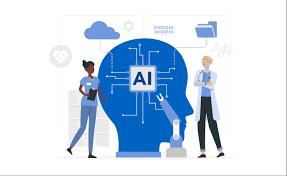
The field of design is not exempt from the impact of Artificial Intelligence (AI). Designing intuitive and seamless experiences requires understanding user needs better and anticipating them ahead of time. As a result of artificial intelligence, this process has become more efficient and possible than ever before. What is the role of AI in predicting user needs? This topic is exciting, so let's delve into it.
1. Analyzing the behavior of users
Large datasets are easily analyzed by AI algorithms. The vast amount of data collected through digital touchpoints allows them to analyze user behavior, interaction patterns, and preferences. To create a more personalized and user-friendly experience, AI uses this analysis to predict future behavior.
2. Experiences that are tailored to your needs
Personalized experiences have been made possible by AI's ability to anticipate user needs. An e-commerce website or streaming platform can recommend products based on a user's past activity, for example. AI can also suggest content based on a user's past activity. User experiences are enhanced when interactions are tailored to the individual's preferences and needs.
3. an adaptive user interface
A user interface powered by AI can adapt to a user's behavior, context, or circumstances in real-time. Navigation apps, for example, can switch to 'night mode' when ambient lighting is low, or fitness apps can adjust their workout recommendations as the user progresses. With AI, digital experiences can be intuitive and effortless by adapting proactively to the user's context.
4. Voice and text assistants with predictive capabilities
Modern digital experiences have become increasingly dependent on AI-powered predictive text and voice assistants. These tools save time and make digital interactions more efficient by anticipating what users are going to say or ask next. In real-time, they demonstrate how AI anticipates user needs.
5. Proactive customer support
The shift from reactive to proactive customer support is being driven by artificial intelligence. Virtual assistants and chatbots powered by AI can predict common user queries and provide solutions before the user asks. Predictive approaches can reduce user frustration and enhance customer satisfaction.
6. Testing and feedback from users
As part of the design process itself, AI can also assist with anticipating user needs. Designers can address potential user issues or gaps in the design phase with the help of AI by simulating user behavior and providing predictive analytics.
Our job as designers is to anticipate and understand user needs. To create truly user-centric designs, we need a powerful tool to forecast and respond to these needs. Through our AI-Powered module, Bhavitra Technologies, a website design agency in India explores and leverages the potential of AI in design, empowering our learners with the skills and knowledge they need to navigate this evolving landscape.
Please fill our form so that we are prepared with as much information of your project as possible. You can expect a reply within one business day.
 +91 8981313005
+91 8981313005We are all ears, waiting for you Give us a ring or email




© 2008 - 2023. Bhavitra Technologies Pvt. Ltd. All rights reserved.
CIN - U72300WB2015PTC207104